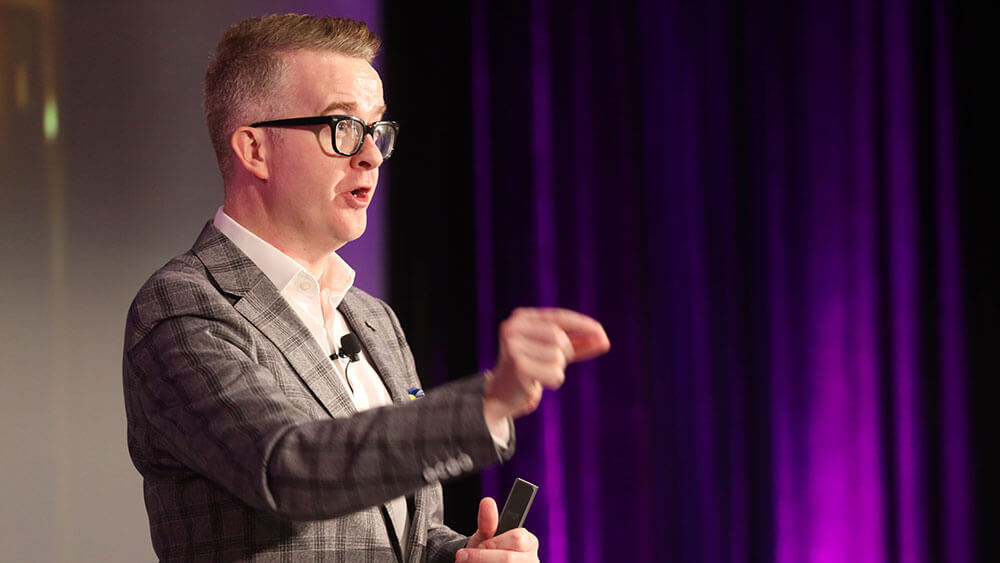
David Meade offered ideas about collecting and using attendee feedback during PCMA Convening Leaders 2020. (Jacob Slaton Photography)
When David Meade finishes speaking at an event, he doesn’t immediately start thinking about the next appearance on his calendar. Instead, the business expert and BBC mentalist immediately asks the client for a review of his presentation. “Our team’s CRM doesn’t shut down after the event is delivered,” Meade said in “The Art of Persuasion: Using Influence to Increase Sales,” a session at PCMA Convening Leaders 2020. “There are seven steps after that to make sure we get a testimonial.”
That proactive approach has even worked for companies like Apple and Facebook — according to Meade, despite having policies that tend to prevent them from offering those statements of support, both companies given him their stamps of approval. However, Meade’s strategy is not just to go after the big names. It’s about asking for as many as possible from all kinds of organizations. “Volume matters when it comes to testimonials,” Meade said. “You must be asking for a case study from every client. You must institutionalize the process of asking for that feedback and that testimonial.”
Testimonials work on an organizational level — a certain type or size of association may be likely to select a speaker or a destination if a similar group offers positive reviews — but they are equally important on an individual level. “As human beings, we are herd animals,” Meade said. “When we see groups of people behaving in a certain way, all we want to do is be just like them.”
As I listened to Meade, I pondered how that herd mentality plays a role in many of our everyday decisions. Should you go see that movie? Find out what other people said about it on Rotten Tomatoes. Where should you eat for dinner on Saturday? Ask Yelp or OpenTable for some suggestions from other diners. Which hotel should you book for the beach vacation? See what TripAdvisor’s users think.
Taking a page from Meade’s strategy, event marketers could make the case to register for their next event far more compelling by strengthening the “Testimonials” section of their event website. Instead of listing bullet points about potential benefits or crafting marketing language, the key to being more persuasive is to let your attendees do the talking. Just make sure you’re making inclusivity and diversity a priority — offering voices from a wide range of the audience to give every other prospective attendee someone they can relate to.
“The bigger a group becomes, the more likely we are to want to move in their direction,” Meade said. “We want to connect to something.”
David McMillin is an associate editor at Convene. This story was originally published Feb. 19.

